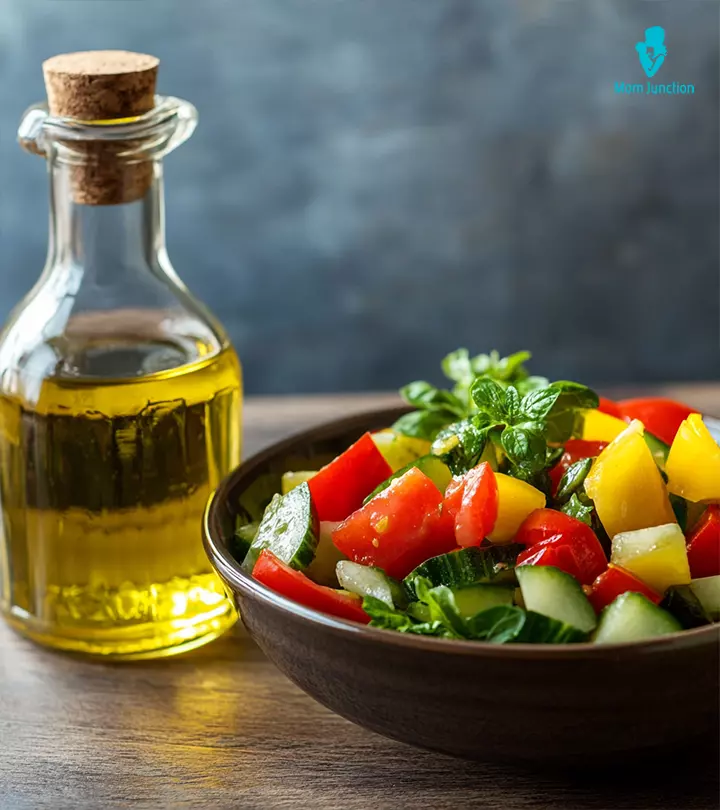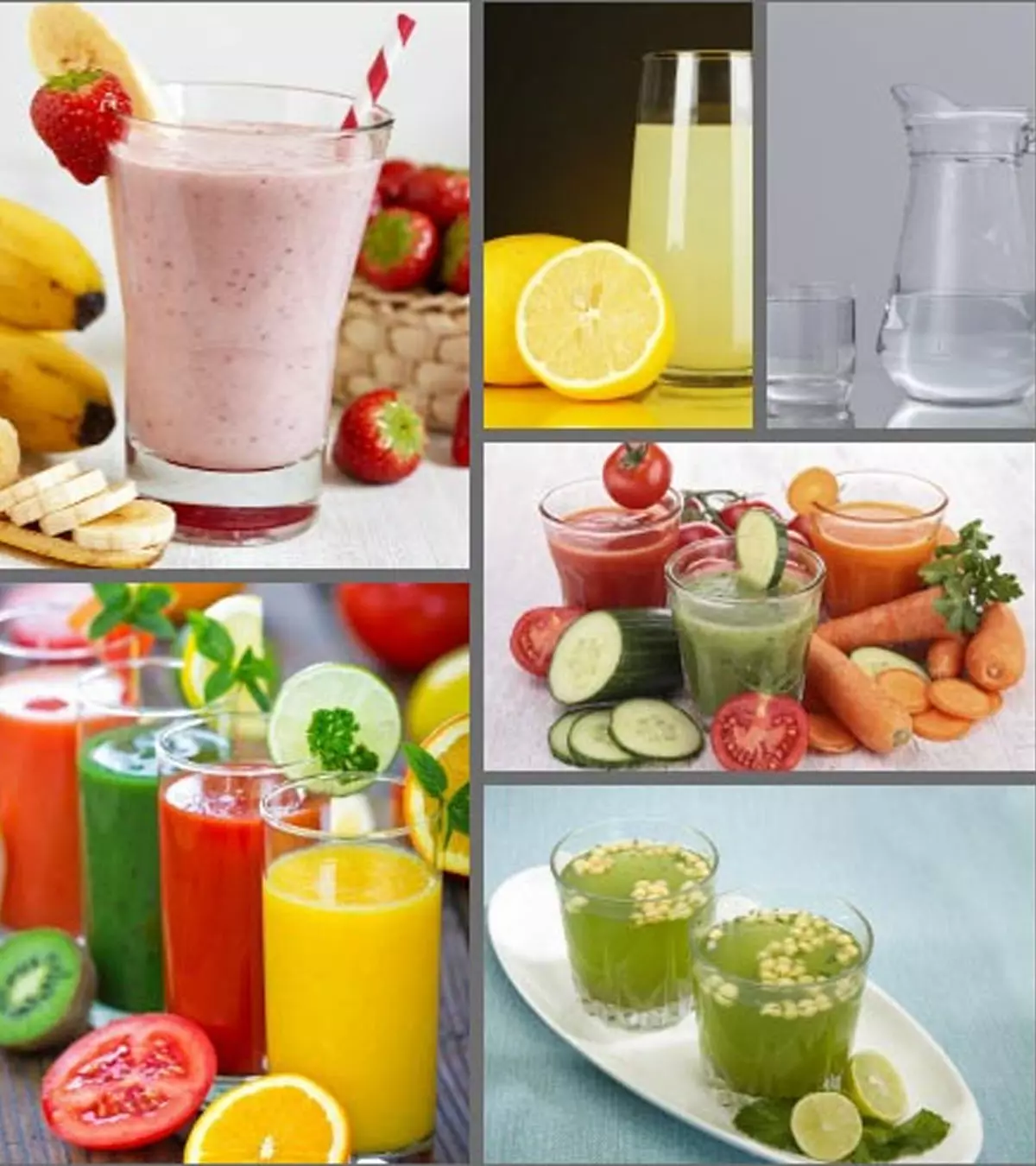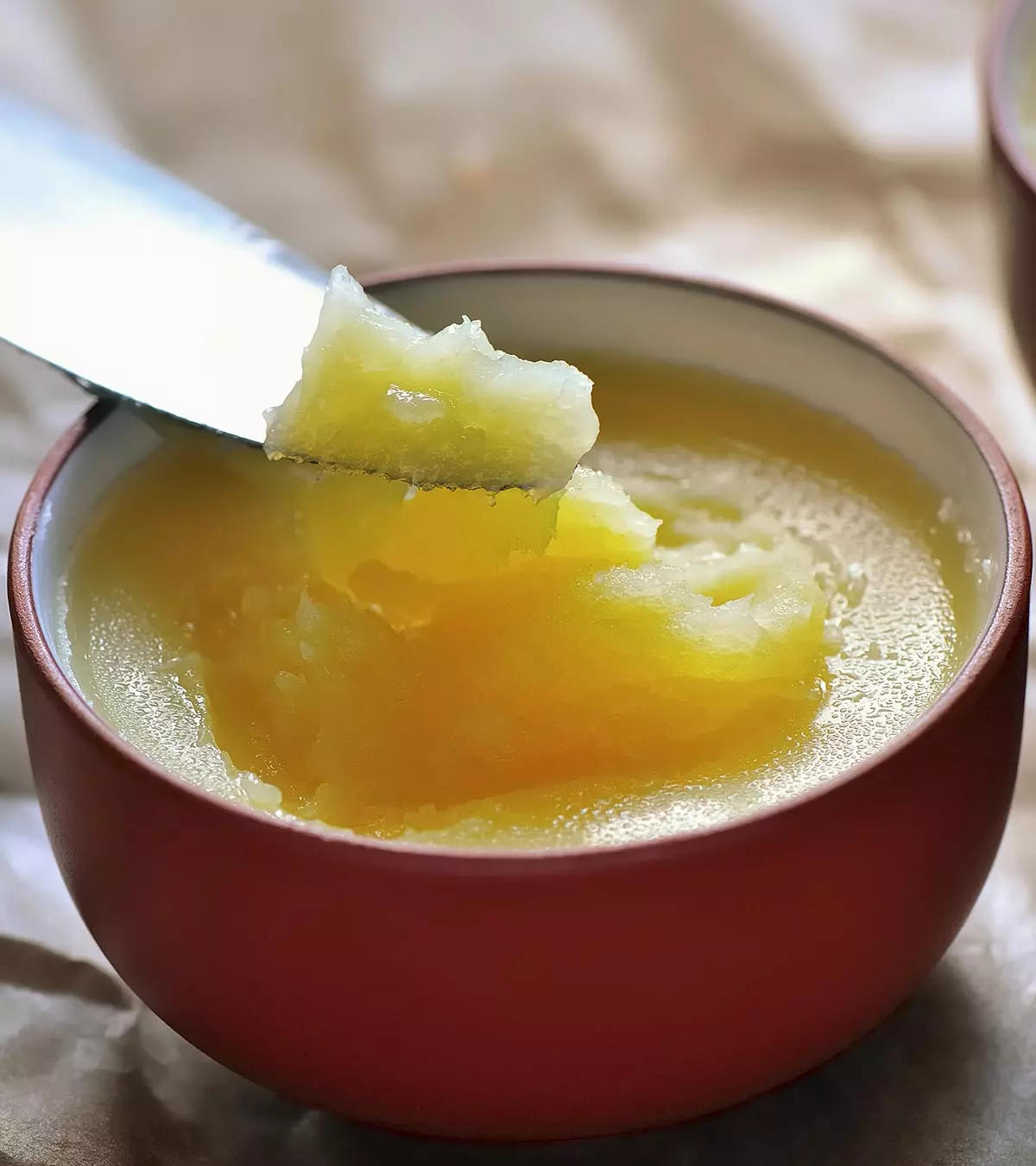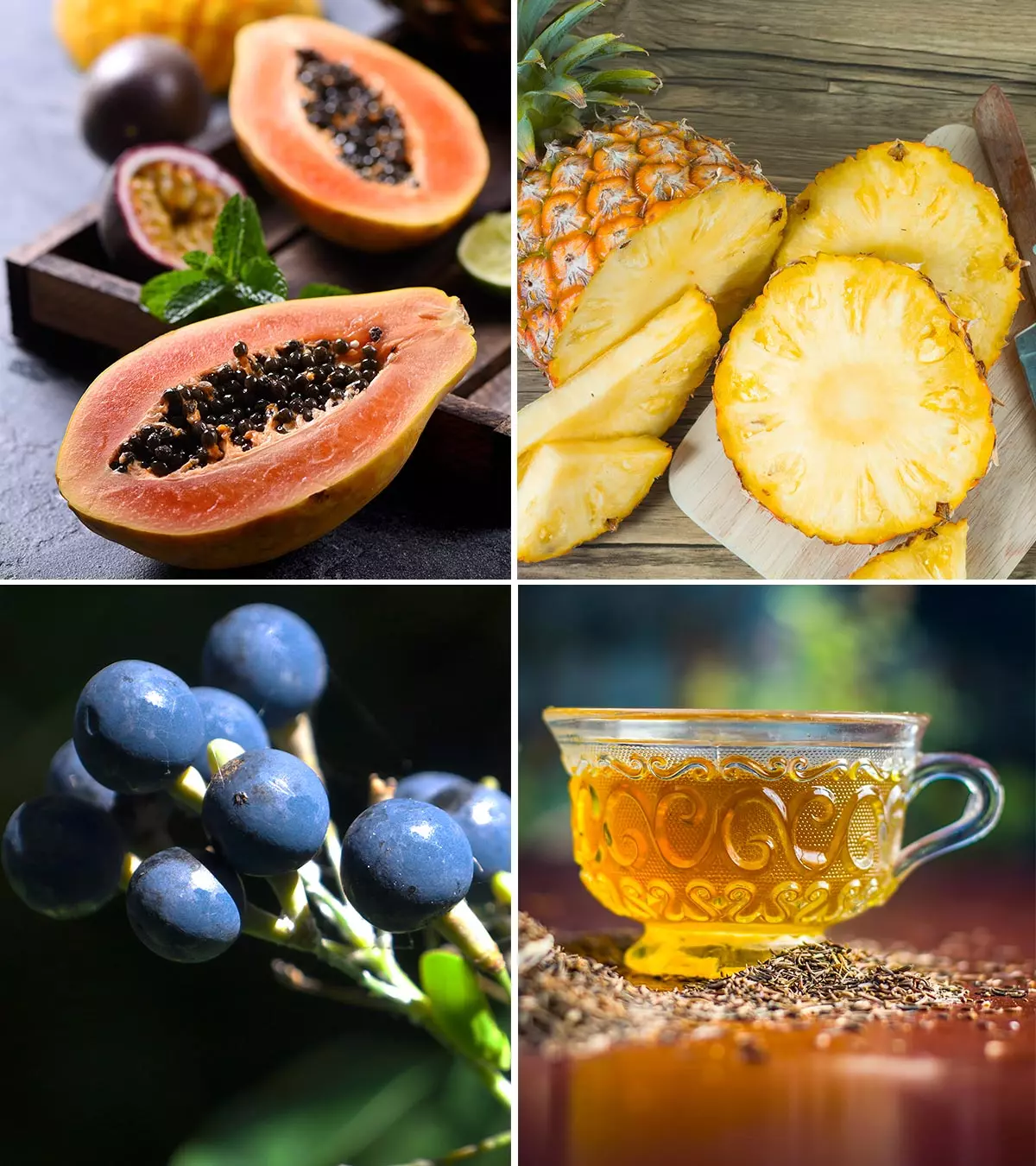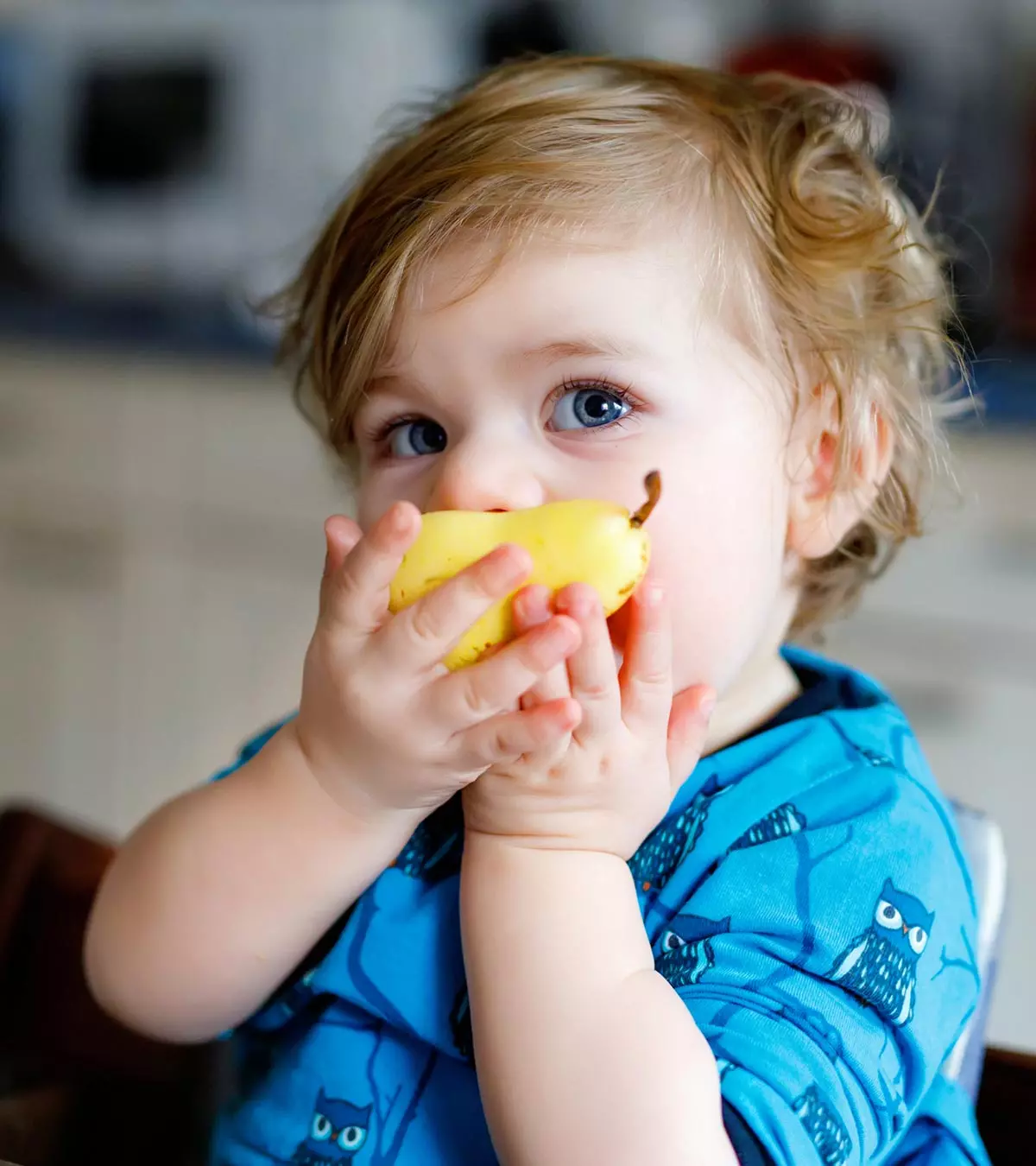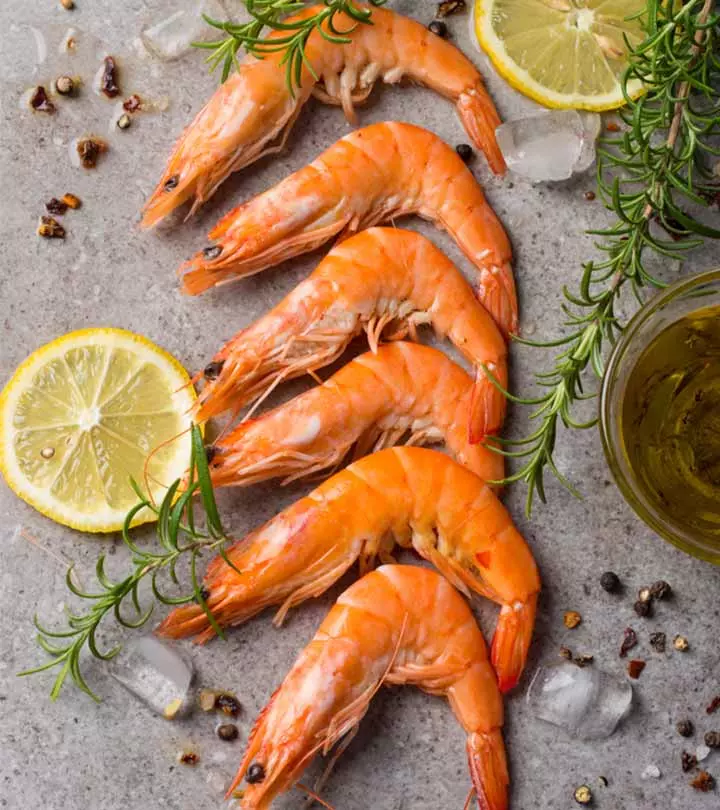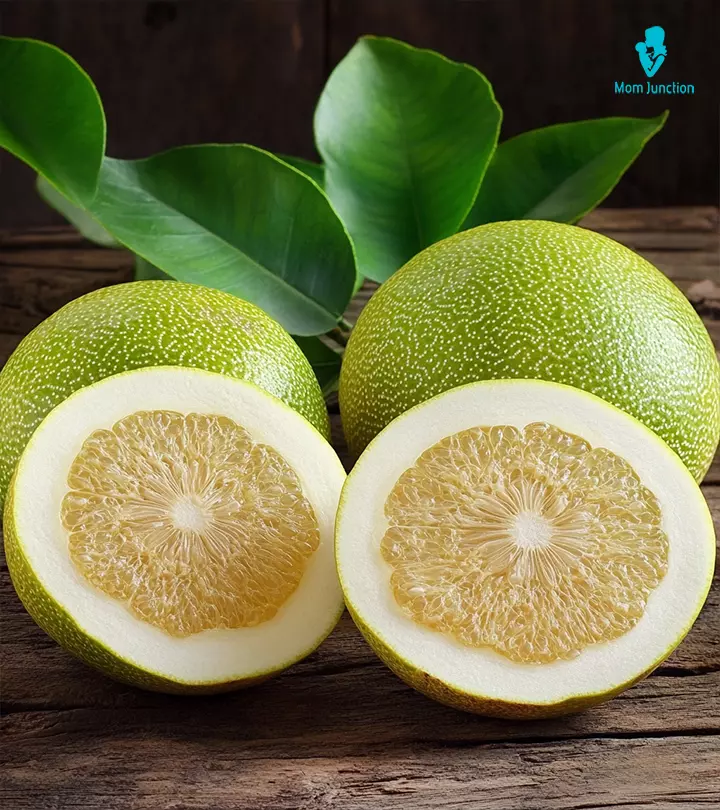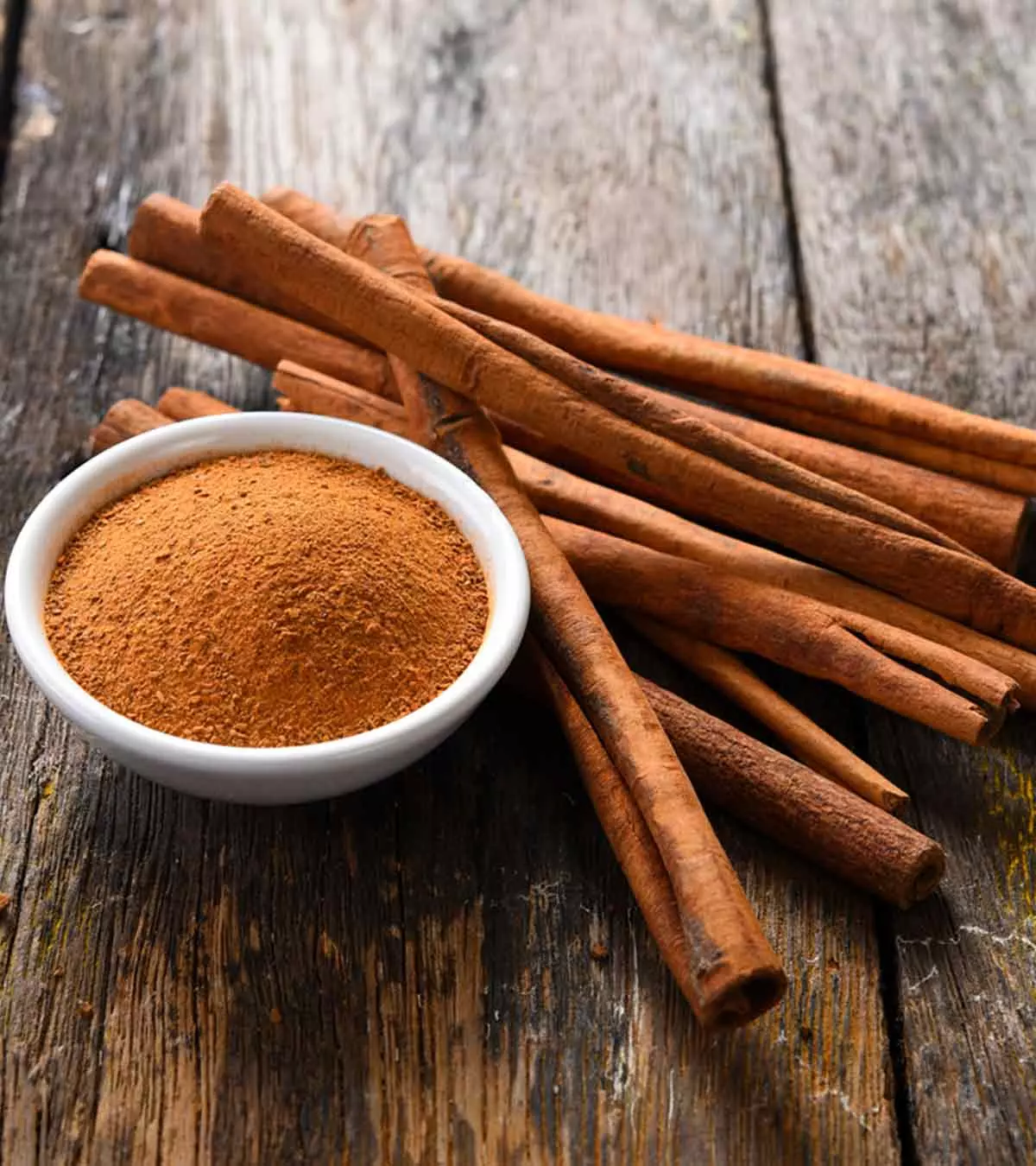
Image: ShutterStock
If you are a tea lover yourself, you might want to know if tea for toddlers is a safe choice. Tea is a popular warm or cold beverage that is available in many flavors. The most popular tea is the one made with the leaves of the Camellia sinensis plant. However, herbal teas or tisanes are available and made with different plant parts such as roots, leaves, flowers, or barks, which are often used as herbs for culinary and medicinal purposes.

Some of these teas are used for therapeutic purposes, especially for treating or managing ailments such as colic and diarrhea. However, limited clinical evidence exists on the general safety and efficacy of teas for toddlers.
Read on as we share an overview of the possible benefits and side effects of tea for toddlers with some precautions to observe while offering it to them.
Key Pointers
- Toddlers shouldn’t be fed tea as it contains caffeine, which may interfere with their sleep.
- Tea also contains tannic acid, which may prevent nutrient absorption from the diet.
- You may try giving them herbal teas with herbs such as catnip, ginger, and peppermint.
- Herbal teas may provide health benefits but may also pose risks of allergies. Consult an expert before choosing it for toddlers.
Is Tea Safe For Toddlers?
According to the NHS, tea (Camellia sinensis) isn’t suitable for babies and young children (1). Tea (green and black) contains caffeine, a psychostimulantiA substance that reduces tiredness, enhances the mood, and helps keep an individual attentive and awake. that can cause irritability, nervousness, and poor sleep (2). Besides, tea contains tannic acid, which can interfere with the absorption of nutrients (iron and zinc), affecting a toddler’s long-term health (3) (4).
Herbal teas usually don’t contain caffeine and that is one of the primary reasons why they are popularly known for their calming properties. They may also impart therapeutic effects when used appropriately. However, limited research exists on their safety and efficacy for infants and young children. Thus, its toddler-friendly nature may only be confirmed after consulting with a pediatrician before feeding.
Common Herbs Used For Preparing Tea For Toddlers
Here are some of the common herbs used for preparing herbal teas for kids, babies, and toddlers.
- Catnip: Catnip is a medicinal herb from the mint family. Its tea, juice, tincture, infusion, and poultice are commonly used to relieve headaches, hiccups, toothache, fever, cold, cough, hives, and infantile coliciCrying episodes in infants for more than three hours a day, three days a week, and longer. . One can make catnip tea by steeping one ounce (28g) of catnip in one pint (473ml) of boiling water. Two to three teaspoons of this tea are considered sufficient for children (5).

- Chamomile: Chamomile is a well-known medicinal herb with two popular varieties — German and Roman chamomile. The US Food and Drug Administration categorizes it as “generally recognized as safe” (GRAS) for use in food (6). Its use is prevalent in alternative and complementary medicine to treat colic, diarrhea, croupiA respiratory infection characterized by breathing difficulties. , and fever in babies and toddlers (7). Furthermore, it also helps to improve sleep and relaxation and reduce muscle spasms.
- Fennel: Fennel is an aromatic plant from the carrot family. Its leaves and seeds are used to make tea, which is often used to treat digestive issues, such as flatulenceiReleasing gas from the digestive tract through the back passage (rectum). and gastric distentioniAn enlargement of the stomach due to air or fluid buildup or other medical reasons. in infants (8). Depending on the intent of use, you can make fennel tea by steeping the crushed or chopped fennel leaves or seeds in boiling water.
- Ginger: Ginger is a common kitchen ingredient known for its antioxidant, antimicrobial, and anti-inflammatory properties (9). Its use for babies and even adults is popular to support digestion and relieve nausea. You can use dried ginger powder or fresh ginger (chopped or juiced) to make ginger tea. However, be careful of its sharp taste, which several toddlers may not like. Avoid excess to avert heartburn and acidity.
 Point to consider
Point to consider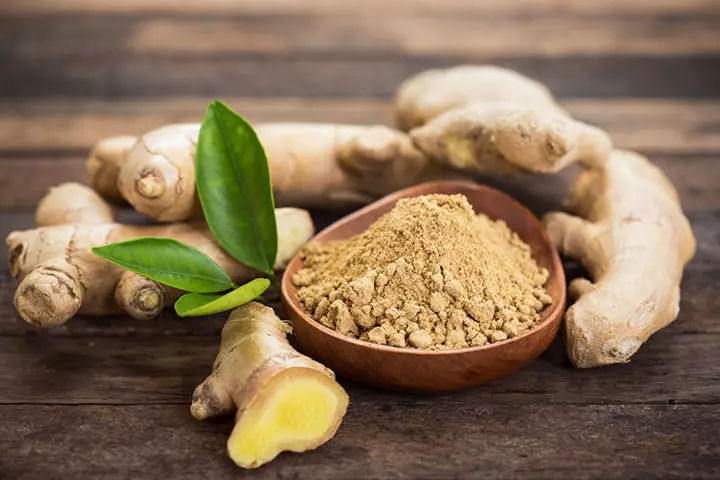
- Lemon balm: Lemon balm is a lemon-flavored herb from the mint family. Its use is prevalent to add or boost the flavor of other teas. Its use with other herbs is known to treat colic and diarrhea in babies (10). Additionally, it is considered to treat indigestion and promote sleep.
- Peppermint: Peppermint contains menthol, which induces a soothing effect on an upset stomach and may relieve constipation. Peppermint tea may also alleviate pain, flatulence, colic, nasal congestion, and cough. In vitro studies highlight its potential antioxidant, antibacterial, and anti-inflammatoryiProperty of a medication or chemical that helps reduce inflammation (swelling associated with pain) in the body. properties. However, more clinical studies are needed to ascertain its safety for babies and children.
- Rooibos tea: The caffeine-free tea is packed with antioxidantsiMan-made or natural chemicals that protect the cells from oxidative stress and damage. that help fight free radicals, which lead to ill-health and cancers. It is suitable for children from six months but shouldn’t replace milk.
In addition to herbal teas, some people may prefer drinking fruit-infused water such as hot lemon water for improved digestion and hydration. However, consult with your pediatrician before including it in your toddler’s diet.
Are There Any Benefits Of Herbal Tea For Toddlers?
When used under pediatric guidance, herbal teas may treat and manage some ailments in babies and toddlers. For instance, chamomile tea’s use is prevalent in complementary and alternative medicine to alleviate colic and diarrhea in infants and toddlers (11). Similarly, herbal tea use is also believed to relieve cold and cough, promote digestion, and enhance sleep. Consult an expert before using herbal teas for toddlers as their use needs caution.
What Are The Side Effects Of Herbal Tea For Toddlers?
Herbal teas have potential side effects that parents should be aware of before serving them to babies and toddlers.
- Allergy: A toddler could be allergic to a herb or herbs present in a herbal tea. Some of the common symptoms of an allergic reaction are skin rash (hives), itching, tingling sensation in the mouth, swelling of the face, lips, throat, and tongue. In rare cases, herbal tea may lead to a life-threatening condition called anaphylaxisiAn emergency condition caused due to severe allergic reaction to a specific chemical, food, or disease. .
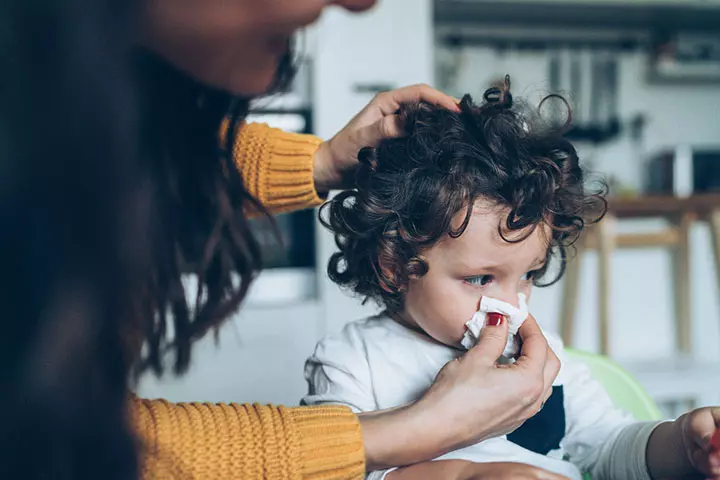
- Cross-reactivity: Cross-reactivity with herbs is also possible. If your toddler is allergic to any food or substance, check with your doctor if the herbal tea can cross-react and cause allergic reactions. For instance, infants allergic to plants in the Apiaceae family, such as carrot, coriander, cumin, and parsley, could also be allergic to fennel tea (12).
- Cross-interaction: Herbs contain active ingredients that may interact with drugs and dietary supplements. If your toddler is on medication or consumes any supplement, consult a pediatrician before serving them herbal tea.
Precautions To Take While Using Herbal Tea For Toddlers
Observing precautionary measures could ensure the toddler’s safety when using herbal tea for specific purposes.
- Consult an expert before using herbal tea for toddlers. Herbal teas are not regulated by the US Food and Drug Administration (US FDA), meaning their safety and efficacy can’t be guaranteed.

- Communicate the intent of use to the expert. After considering their age and overall health, it will help them advise safe intake limits for your toddler and let you know whether mornings or bedtimes would be the best time to serve the tea.
- Document any adverse reactions your toddler experiences after consuming herbal tea and report them to your pediatrician for further guidance.
- Buy pure herbal tea from a reputed and trustworthy manufacturer and seller. It will help ensure the product is adulterant-free.
- Purchase herbal tea sold in tea bags. Loose tea is prone to contamination and adulteration. If you prefer using loose tea, buy it from a reputable store to ensure product quality.
 Quick tip
Quick tip- Check the label carefully while buying herbal teas. Often herbal teas contain more than one type of herb and may contain other additives.
- Store loose tea in an airtight container and teabags in their original packaging, away from direct sunlight, moisture, and heat.
- Prepare tea as directed on the package or as advised by the doctor or expert. Usually, steeping a tea bag or some loose tea leaves in boiling water for three to five minutes is sufficient.
- Feed no more than two to four tablespoons initially. If the toddler doesn’t show any signs of discomfort or sensitivity, increase the amount gradually to the recommended amount.
- Use fewer leaves if using loose tea. Using excess leaves can make the tea too concentrated, making the tea unpleasant to taste and increasing the risk of adverse effects, such as an upset stomach.
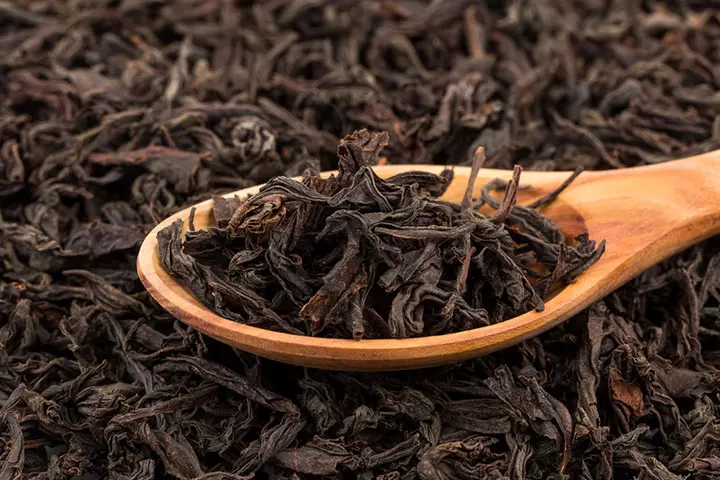
- Avoid adding sweeteners, such as white sugar, while preparing herbal teas. If the tea tastes bitter, has a sharp taste, or the toddler doesn’t like it, serve the tea in small quantities. You may serve it with sweet food items, such as cookies or honey. Do not add honey if serving the tea to a baby younger than 12 months since it may increase the risk of an adverse condition called infant botulismiA rare food poisoning caused due to the toxins produced by the bacteria Clostridium botulinum. .
- Do not serve tea to your toddler in a bottle or sippy cup. Serve the herbal tea in small sips with a spoon or in a small glass/cup.
Frequently Asked Questions
1. What tea is safe for 2-year-olds?
Herbal teas can be given to 2-year-olds because they are caffeine-free and hydrating. They are a healthier alternative to sugary drinks such as soda and juice. However, you need to be cautious because many herbal supplements and teas are not regulated by the FDA (13) (14) (15).
2. How much tea can a 2-year-old drink?
You can give your 2-year-old toddler half a cup of caffeine-free herbal tea, such as chamomile tea, per day (16).
3. At what age can a baby drink tea?
Tea is not recommended for babies and toddlers (17), but herbal teas such as chamomile, ginger, and lemon tea can be given in moderation to babies aged six months and up.
Several herbs can be used to make tea. Herbal teas are useful for treating/managing conditions, such as colic. However, their safety and effectiveness are yet to be known. Hence, you should use tea for toddlers after consulting your pediatrician. Seeking expert opinion is vital as the way you prepare tea for toddlers is different from preparing tea for adults. Also, not all herbs are suitable for young children. So stay extra cautious at every step and purchase tea for children after discussing its pros and cons with an alternative medicine expert.
Infographic: Benefits And Side Effects Of Herbal Tea For Toddlers And Preschoolers
While herbal teas are generally safe to consume and beneficial for toddlers, there might also be some disadvantages to their consumption. Take a look at the infographic below to know some more benefits and side effects of herbal teas for toddlers and preschoolers.
Some thing wrong with infographic shortcode. please verify shortcode syntax
Illustration: Tea For Toddlers: Which Are Safe Benefits And Precautions

Image: Stable Diffusion/MomJunction Design Team
References
1. Drinks and cups for babies and young children; NHS
2. Caffeine; Kids Health From Nemours
3. Tsedeke Wolde; Effects of caffeine on health and nutrition: A Review; ResearchGate
4. Infant Feeding and Nutrition Staff Module; Oregon Health Authority
5. Catnip: Its uses and effects, past and present; NCBI
6. Chamomile; Drug And Lactation Database; NCBI
7. Janmejai K Srivastava et al.; Chamomile: A herbal medicine of the past with bright future; NCBI
8. Gurmeet Singh Sarla; Saunf: Do we really need fennel seeds after a meal?; ResearchGate
9. Nguyen Hoang Anh et al.; Ginger on Human Health: A Comprehensive Systematic Review of 109 Randomized Controlled Trials; NCBI
10. Lemon Balm; Drug And Lactation Database; NCBI
11. Paula Gardiner, Complementary, Holistic, and Integrative Medicine Chamomile; ResearchGate
12. Fennel; Drug And Lactation Database; NCBI
13. Abdela Befa Kinki; A Review on the Production and Uses of Herbal Teas; Auctores Online
14. Your Guide to Summer Drinks for Toddlers; Your Guide to Summer Drinks for Toddlers
15. Questions and Answers on Dietary Supplements; U.S Food & Drug Administration
16. German chamomile; Mount Sinai
17. H Merhav et al; Tea drinking and microcytic anemia in infants; American Journal of Clinical Nutrition
17. Why Ginger Offers Health Benefits; Cleveland Clinic
Community Experiences
Join the conversation and become a part of our nurturing community! Share your stories, experiences, and insights to connect with fellow parents.
Read full bio of Moloko Mehlape
Read full bio of Swati Patwal
Read full bio of Rohit Garoo
Read full bio of Ghazia Shah







